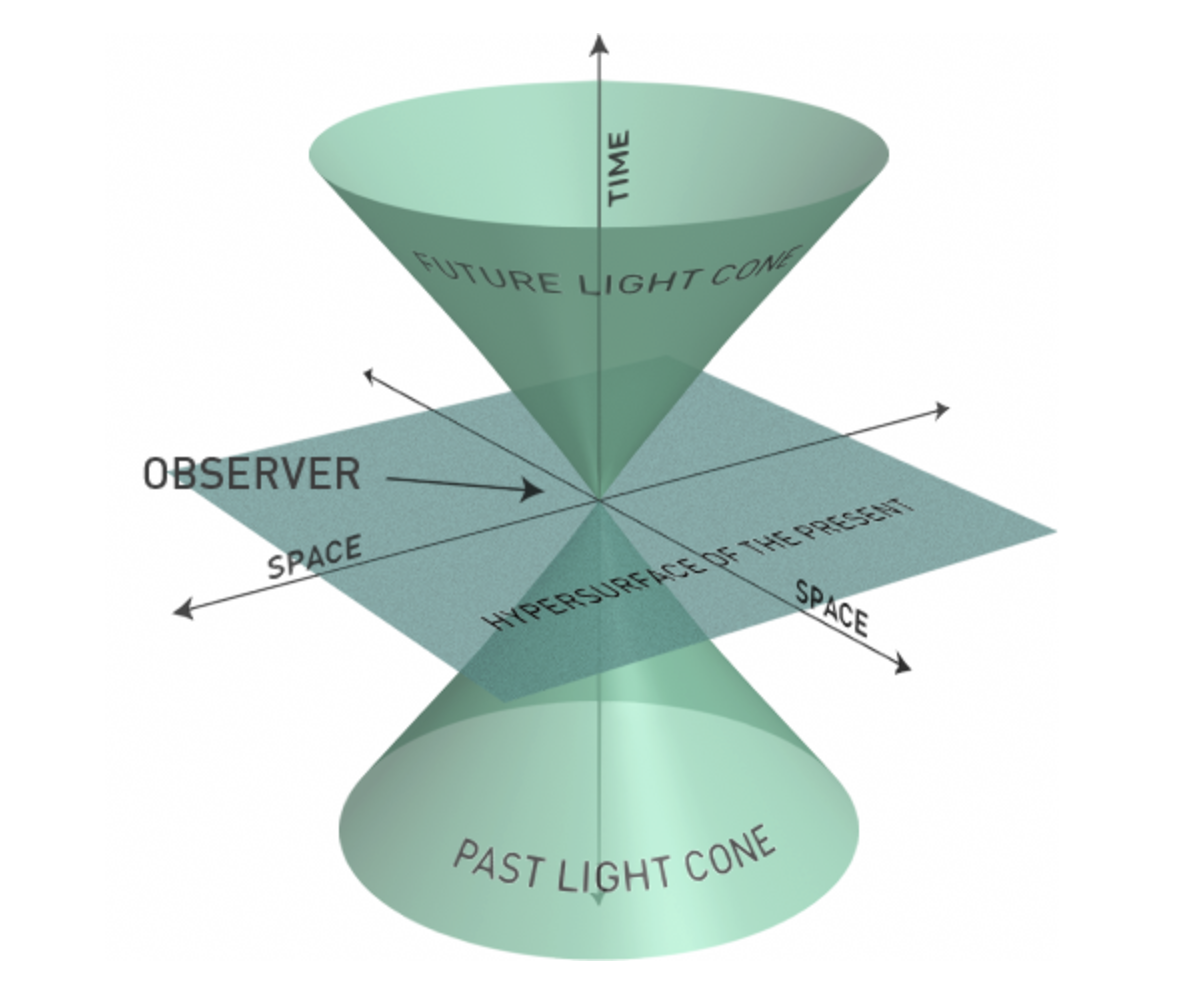The Internet Encyclopedia of Philosophy
5. What Is Spacetime? by Bradley Dowden, The Internet Encyclopedia of Philosophy, ISSN 2161-0002, https://iep.utm.edu/frequently-asked-questions-about-time/#H5, 2024/03/28.
5. What Is Spacetime? by Bradley Dowden
 A spacetime Diagram
A spacetime Diagram
Spacetime is a certain combination of space and time. It is the set of locations of events, or it can be considered to be a field where all events are located.
There are actual spacetimes and imaginary spacetimes. Our real four-dimensional spacetime has a single time dimension and three space dimensions. But there are imaginary spacetimes with twenty-seven dimensions. There is a three-dimensional spacetime composed of two spatial dimensions and a time dimension. In one of these spacetimes, points in space indicate the latitude and longitude in Canada for the sale of a company’s widget, and points along the time dimension indicate the date of the sale of the widget. In any spacetime, real or imaginary, the coordinates are the names of locations in space and time; so they are mathematical artifacts.
In 1907-8, Hermann Minkowski was the first person to say that real spacetime is fundamental and that space and time are just aspects of spacetime. And he was the first to say different reference frames will divide spacetime differently but correctly into their time part and space part.
Later, Einstein discovered that real spacetime is dynamic and not static. That is, its structure, such as its geometry, changes over time as the distribution of matter-energy changes. In special relativity and in Newton’s theory, spacetime is not dynamic; it stays the same regardless of what matter and energy are doing.
Spacetime can be curved. Focusing just on space, the overall, cosmic curvature of our space is unknown, but there is good empirical evidence, acquired in the 1990s, that the overall, cosmic curvature of space is about zero but is evolving toward a positive value.
In general relativity, spacetime is assumed to be a fundamental feature of reality. It is very interesting to investigate whether this assumption is true. There have been serious attempts to construct theories of physics in which spacetime is not fundamental but instead emerges from something more fundamental such as quantum fields, but none of these attempts have stood up to any empirical observations or experiments that could show the new theories to be superior to the presently accepted theories. So, it is still safe to say in the first quarter of the twenty-first century that the concept of spacetime is ontologically fundamental.
The metaphysical question of whether spacetime is a substantial object or merely a relationship among events, or neither, is considered in the discussion of the relational theory of time in the main Time article. For some other philosophical questions about what spacetime is, see What is a Field?
The force of gravity over time is manifested as the curvature of spacetime itself. Einstein was the first person to appreciate this. According to the physicist George Musser:
Gravity is not a force that propagates through space but a feature of spacetime itself. When you throw a ball high into the air, it arcs back to the ground because Earth distorts the spacetime around it, so that the paths of the ball and the ground intersect again.
A spacetime Diagram